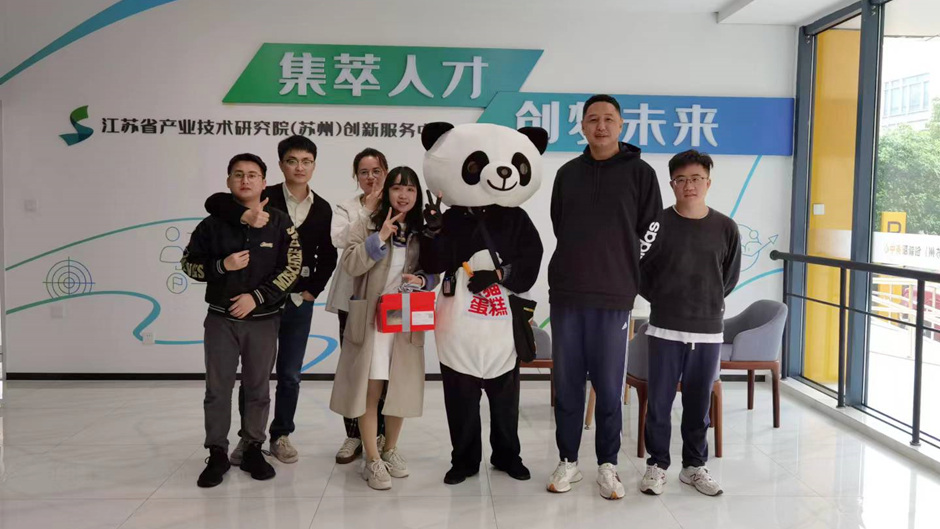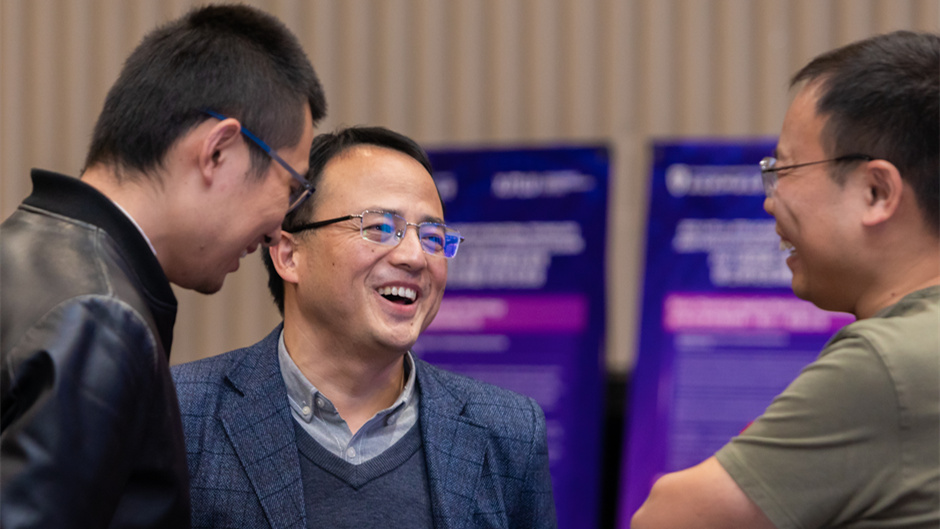
In the summer of 2016, Hengyang Luo, a Xi’an Jiaotong-Liverpool University graduate with a new masters degree in Electrical and Electronic Engineering, took what some might consider a brave step. Instead of accepting a full scholarship to pursue a doctorate, he decided to start his own business.
Today the company he founded, Suzhou VSDeeP Intelligent Technology Company (VSDeeP), supplies products to nearly 85% of the system integrators in the construction field in China.
VSDeeP provides products that use artificial intelligence (AI) to monitor the safety and environmental quality of construction sites, such as whether safety equipment is being worn properly and when measures to reduce blowing dust need to be taken.
“All the equipment is remotely managed, which greatly reduces the labour costs,” Luo says.
Closing gaps
Luo says he made the leap from academia to industry because he wanted to learn about real-world industry needs.
“I was worried that my research would fail to meet the needs of society,” he said.
Luo’s concern corresponds with a challenge that the XJTLU-JITRI Academy of Industrial Technology at his alma mater is working to solve: the gap between academic knowledge and industrial practice.
Luo explains the issue: “There is still a huge gap between academic knowledge and industrial practice. For example, working with artificial intelligence requires the ability to use systems. This is beyond the abilities of students with only general education and basic research experience.”
The University and Jiangsu Industrial Technology Research Institute (JITRI) jointly established the Academy in 2021.
Luo has ties with the Academy, even though it did not exist when he studied at XJTLU. His company joined the innovation service centre of Jiangsu Industrial Technology Research Institute (Suzhou), which was co-founded by JITRI and the Suzhou Industrial Park Administrative Committee. The centre introduces innovative resources, incubates projects, and meets the needs of industry in the Suzhou Industrial Park (SIP) area of Suzhou. Further, the centre is committed to academic-industry collaboration, including jointly training Suzhou’s college student talents and cooperating with Dushu Lake Science and Education Innovation Zone and universities.

Two mentors
Luo credits both his academic and industry mentors in his company’s success. Dr Huiqing Wen mentored him when he pursued his masters at XJTLU’s School of Advanced Technology. Zhe Bian at Jiangsu Industrial Technology Research Institute (Suzhou)’s innovation service centre guided his growth as an entrepreneur.
“From Dr Huiqing Wen, I learned how to conduct scientific research and to think independently,” Luo says.
“At the innovation service centre, I took advantage of the many courses on entrepreneurship guidance organized by Zhe Bian. Practical knowledge, especially training courses on finance and financial management, have benefitted me a lot and prepared me for financing. Furthermore, I had the opportunity to attend meetings in which industry leaders and CEOs of successful enterprises shared their experience.”
Entrepreneurship challenges
Luo’s accomplishments required perseverance to meet a barrage of challenges.
“Initially, I thought it was very cool to start a business, and I believed that I would achieve quick success and become well-known,” he says. “But this 'arrogance' slowly faded away in one setback after another.”
One of the challenges all entrepreneurs face is the need for startup capital and ability to scarce resources, he says.
Luo: “To start a business and achieve success, entrepreneurs must make full use of the limited resources at hand. The initial resources are equally important. Without the startup funds, one is not even qualified to embark on the venture in the first place.”
After securing his angel investment, he also faced the challenge of how to develop the company’s competitive advantages and build on its strengths. He found ways to differentiate what VSDeeP delivers.
“By virtue of a low-code model, our development cycle can take as short as two to three hours’ time to reach the customer's platform. This has enabled us to get the competitive edge over larger companies that lack the time and energy to achieve this,” says Luo.
His company looks to the future with plans for a product focused on digital twin city construction, a national priority in China. A digital twin city is a virtual replica of an actual city.
Luo: “One aspect of our project will enable the twinning and recording of the building life cycle through a meta-universe built with a timeline. In the future you can see the entire building construction process, including what each room looks like at different stages, as a kind of supervision of the construction.”
Luo has already met the first challenge for the new product, having obtained angel investment.
By Yuxiao Zhang
Translated by Ziying Shi
Edited by Bo Kou and Tamara Kaup
Photo courtesy of Hengyang Luo


